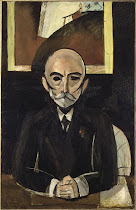Tip1: Don't tell jokes. Tell pieces.
This is largest difference between an amateur and a professional stand-up comedian. An amateur will tell one joke and then move on to another joke. A professional tends to move from piece to piece.
For clarity, some definitions:
-A joke is anything that you expect will make the audience laugh.
-A piece is several related jokes.
For instance:
I'll use an example of something that got a great response the last time I did stand up. I've bolded each time I expect the audience to laugh.
Right after he had won Superbowl XXXI Terrel Davis looked at his championship ring and said "It's nice to be immortal." Romanowski popped another champagne bottle and patted him on the back "everyone will remember this game." And Terrel said, "No no no, I mean never dying." The locker room went silent. John Elway was the leader of the team so it was his job to break the news. "Um, Terrel... Superbowl rings don't make you live forever." Davis laughed until he realized his teammates were staring at him. Suddenly he got very serious. "Then why did I spend my whole life playing football?"
There's something about this piece that I can make funny because I love storytelling that requires me to play multiple characters. But there is also something in the structure of the piece that audiences enjoy. It keeps delivering jokes within the same piece. Even great one-liner joke comedians work in pieces.
Consider Mitch Hedberg's piece about fish:
You know on TV when they have a fishing show? They catch the fish but they let it go. They don't want to eat the fish but they do want to make it late for something. (audience laughs) Where were ya? I got caught. (audience laughs) Liar, let me see the inside of your lip.
Occasionally he tells a single joke but more often he tells a piece.
Amateur comedians are often disappointed that their material doesn't seem to have an impact. I find it frustrating when someone has a fun topic but only one joke about it. If you think of something funny, make sure you develop some additional jokes to turn it into a piece. Think in terms of how often you will get a response from the audience. Plan at least two separate lines (more commonly three) that you expect will make them laugh.
Tuesday, December 23, 2008
Subscribe to:
Post Comments (Atom)






3 comments:
Agreed. Hedberg always did a great job of mixing it up, which kept us, as the audience, on our toes. He'd do a piece like this and then a real quick joke. Part of the humor in the quick joke is that it WASN'T a piece. You were expecting it to be, but then... that's it, y'all! That's the whole joke! He was definitely a master of comedic timing and rhythm.
Related: a joke structure I've been really appreciating lately is the piece that twists at the end. You're going along thinking "this is pretty funny," but then the last joke twists it around and you realize the whole joke was really about something else. I came across a decent example of this yesterday, but I'm having trouble finding it now...
Yeah. Steven Wright is another who has some great stand alone jokes -like:
what is the speed of dark?
And that's it. I think a useful definition of comedy is: "playing with expectations".
Oh, yes, good point! I love J-Money's blog The Typing Makes Me Sound Busy (keepyourreceipt.blogspot.com) and part of what she does that always makes me laugh is how she reaches for a joke I wasn't expecting. I think she's going in a certain direction, and am prepared to golf-clap laugh, and then she takes it one step further and-- HA!
Post a Comment